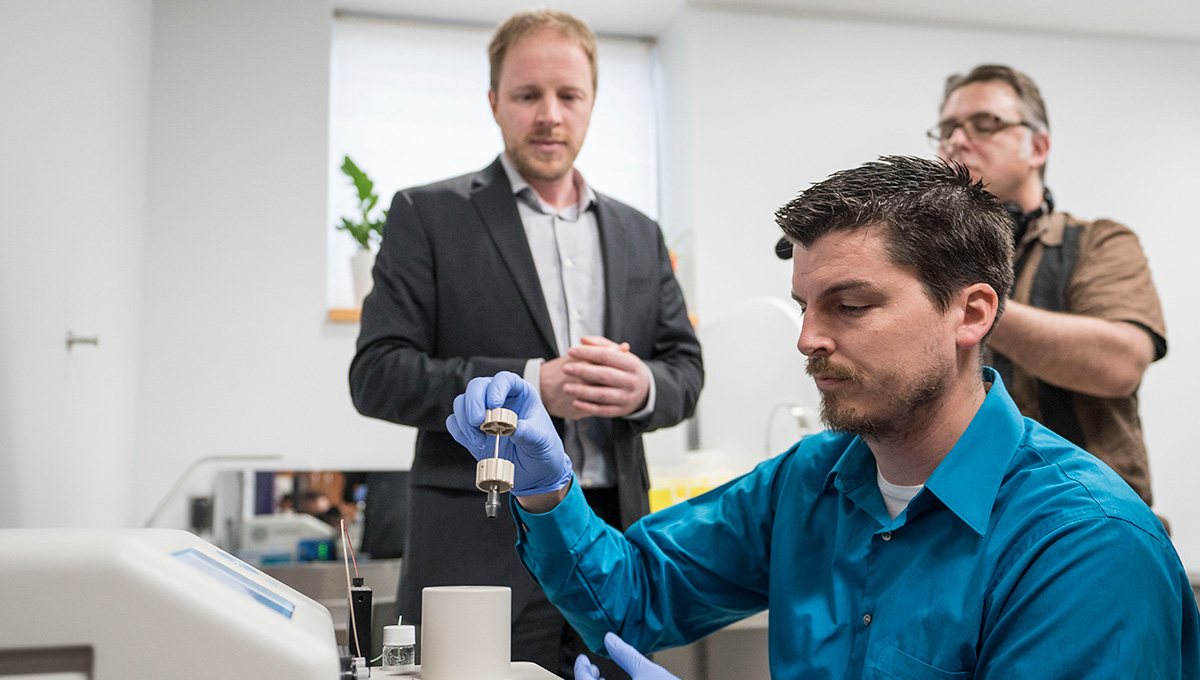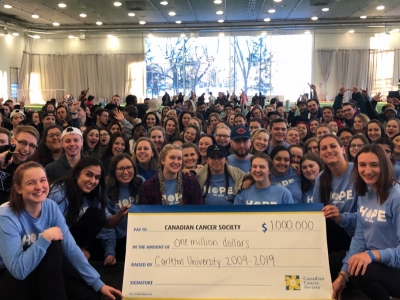A unique project developed by Carleton University’s Jeff Smith and partner Lynne Leonard at the University of Ottawa has been selected as one of nine semi-finalists for Health Canada’s Drug-Checking Technology Challenge.
Each semi-finalist will each receive $25,000 to develop prototypes.
Smith, director of the Carleton Mass Spectrometry Centre, is part of a groundbreaking partnership piloting the use of a portable mass spectrometer to test drug samples and prevent opioid overdoses at the Sandy Hill Community Health Centre supervised injection site.
The 22-pound bread maker-sized machine can provide the precise “chemical signature” of a substance based on the mass of its constituent molecules in less than 20 seconds.

Clients who come to the injection site just off Rideau Street are asked if they want their drugs checked before they use — and told exactly what’s in their syringes.
If they contain fentanyl, carfentanil or another dangerous substance, including slightly modified opioid analogues, this information could convince them not to shoot up or prompt staff to be on standby with naloxone for a potential overdose. And if testing exposes a pattern of bad drugs circulating through the city, officials can quickly distribute a widespread alert.
Health Canada, in partnership with Impact Canada, selected the semi-finalists to encourage innovation in drug-checking technology and to help people to more accurately determine risks associated with drugs they consider taking.
Health Canada has authorized drug-checking services at supervised consumption sites and overdose prevention sites.
Wednesday, April 24, 2019 in Faculty of Science
Share: Twitter, Facebook



